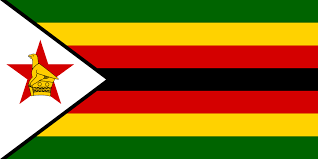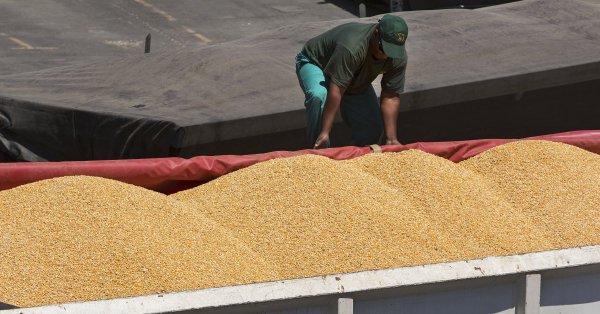For half the year, the temperature on Pall Olafsson's remote farm in Iceland often dips below freezing and the sun barely makes an appearance.
Australia’s 2018-19 winter crop production is now estimated to be 23% lower than last year’s crop, and 20% below the 20-year-average due to unfavorable weather conditions in early spring.
WHITE FARMERS IN ZIMBABWE SAY THEY'RE GETTING POORER AND SICKER AS THEY AWAIT COMPENSATION FOR FARM SEIZURES
- Africa Continent
- Hits: 2152
White farmers in Zimbabwe who were evicted from their properties years ago have been experiencing a drop in food production, and their hope to get government financial help to compensate any losses caused by land seizures is slowly dimming, according to some activists.
South Africa’s agricultural sector is unique in such a way that it favours industrial farming, unlike in many countries on the continent.
World total grains production is forecast to hit a three-year low, falling short of demand and keeping global trade strong, the International Grains Council said following its 48th Council Session on Dec. 4 in Paris, France.
Soybean futures on the Chicago Board of Trade surged to their highest level since August in early trade on Monday after President Xi pledged to buy agricultural products from the US at G20 talks over the weekend.
Newsletter Subscribe
AGRI NEWS NET "LIVE" FEED
- This is AGRI NEWS NET- updated with the latest "good news" in farming and Agriculture- In your hand and easy to browse. Together with farmingportal.co.za and the all NEW E- media that is almost done, we bring you the 7 days a week.
- We have Over 1000 professional Audio cast recordings- Its very popular- Click on the link and follow us. Our Audiocast include a weekly AGRI RUSH- Headline s of the week.
- Daagliks is daar verskeie nuwe Korttermyn verskeringsmaatskappye wat tot die landbou probeer toe tree met allerhande afslag premies en beloftes. Maar as dit kom by uitbetalings is daardie beloftes nie meer so maklik nie. Verseker maar liewer by die maatskappye wat al jare lank in die landbou besigheid doen en wat verteenwoordigers het wat jou persoonlike diens kan gee.
- For many people, a healthy lifestyle means more than eating a good diet and getting enough exercise — vitamins, supplements, and complementary nutritional products are also part of the plan. But though there is much publicity about their potential benefits, there is less awareness of their possible harmful effects.
Popular News Tags
AGRI NEWS NET AUDIO CAST Feeding-
- We live in 2026, and it is time to take control of your health and your life.
- Is Brexit Really the Alternative to AGOA?
- South Africa citizens paying too much to live-
- Your Circulatory System: The Hidden Key to Lifelong Health
- South African extra virgin olive oil production
- South Africa’s agricultural sector stands out as one of the few bright spots
- High stress levels and High cortisol levels
- Future of Pesticides in Grain and Other Production: A South African Perspective

















